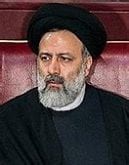iranhr.net – Events of the last few years have made the future of the Islamic Republic more uncertain than ever. The economic crisis has pulled a large sector of society into poverty and exposed systematic corruption and the authorities’ incompetence in solving people’s daily problems. Faced with discontent, the Islamic Republic’s only recourse has been to violently repress popular protests. The question is no longer “when” but “how” Iran will transition from authoritarian rule. An unaddressed question that requires an exploration of the alternative models that may fill the power vacuum following the collapse of the Islamic Republic.
By establishing “Iran in Transition,” Iran Human Rights aims to provide a platform to start the discussion on the practical options for the transition period. We invite Iranian and international experts and academics to discuss and debate the subject, Iran’s history and the lessons we can learn from other countries’ experiences.
Iran Human Rights will specifically focus on transitional justice and constitutional models, the economy and the cultural context for building an inclusive society. It also calls for the participation of Iranian civil society, opposition groups and the public. The written submissions will be explored and deliberated through audio and video debates. The result is a collection of essays on comparative scenarios and models, and possible solutions for the transition period that is tailored to Iranian society while guaranteeing human rights, the rule of law and democratic values.
The economic crisis, rising unemployment and poverty have led to further unrest in Iran. The authorities have been incompetent in improving the economic situation and instead of responding to people’s demands, have resorted to more violence and repression. Gross human rights violence and the lack of the rule of law on the one hand, and widespread economic corruption on the other, have led to growing public anger.
That the protests have continued despite violent crackdowns shows that people no longer fear the government; instilling fear was the authorities’ most essential tool in maintaining power.
43 years after its establishment, the Islamic Republic lacks legitimacy both amongst Iranians and in the international arena. Its leaders were not chosen by the people through free and fair elections. Since the authorities are neither transparent, accountable or competent, we are facing a high level of corruption and human rights violations on the one hand, and a system that cannot provide the bare minimums for its people on the other. Internationally, the Islamic Republic is considered a threat to regional stability and world peace, and its leaders face increasing isolation in practice.
Challenges of post-authoritarian transition
The authorities’ incompetence and lack of legitimacy, combined with people’s desperation, make the future of the Islamic Republic unpredictable. The issue is not just when the Islamic Republic must change but also which transition model can fill the power vacuum in the transition period.
Iranian society is a mosaic of different political orientations and ethnicities. Recent anonymous polls have shown that Iranians have different preferences for a types of government (republic versus constitutional monarchy), executive form of government (parliament versus presidency), political structure (centralised and decentralised), and models of democracy. However, since there has not been enough expert discussions on the transition period amongst opposition groups or society at large, such preferences are not rooted in a deep understanding of the different models.
Furthermore, transition experiences in other countries have proven that it is a considerably more challenging phase and is crucial for the future outcome of the country. Failure in the transition phase will lead to a new authoritarian regime (eg: Egypt) or an unstable political system (eg: Iraq and Lebanon). Moreover, countries that have succeeded in the transition phase, have managed to establish relatively stable foundations of democracy.
It is therefore crucial to start the discussion on transition from authoritarianism and consider appropriate models for Iran. The key question to consider is “what political and institutional structures would be the most compatible and practical for Iran after the Islamic Republic?”
The 1979 Revolution demonstrates that the future judicial system will be based on transitional justice. For example, the Revolutionary Courts established in 1979 to arbitrarily try and execute former officials, are still operating and are responsible for the vast majority of all death penalty cases in the last 43 years.
Thus, it will also be important to discuss transitional justice and its outcomes which include establishing the truth, justice for the victims of human rights atrocities, holding the perpetrators of human rights violations accountable and establishing the rule of law. Environmental challenges, the water crisis and the oil-dependent economy must also be considered in the transition period.
 Shabtabnews In this dark night, I have lost my way – Arise from a corner, oh you the star of guidance.
Shabtabnews In this dark night, I have lost my way – Arise from a corner, oh you the star of guidance.



